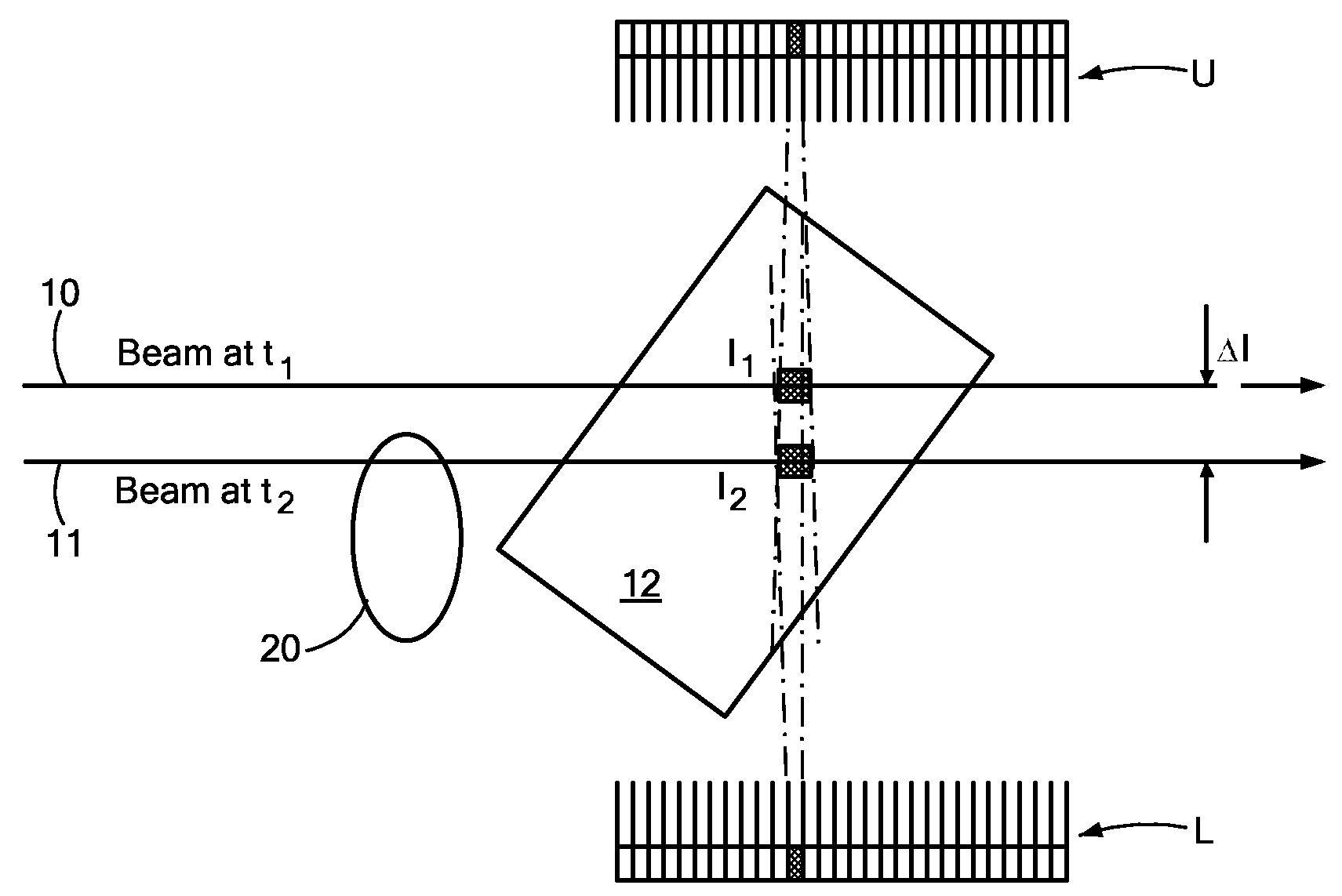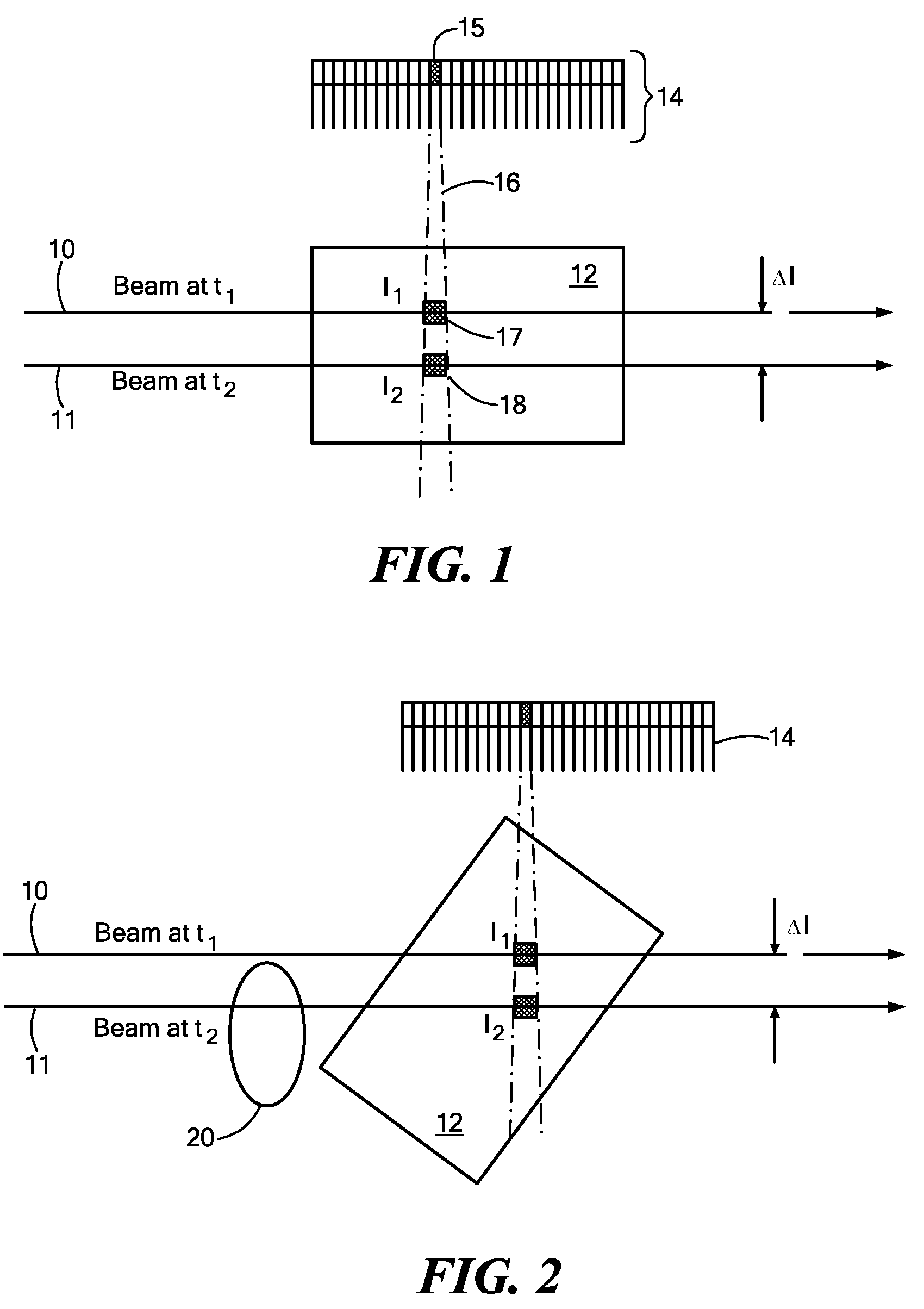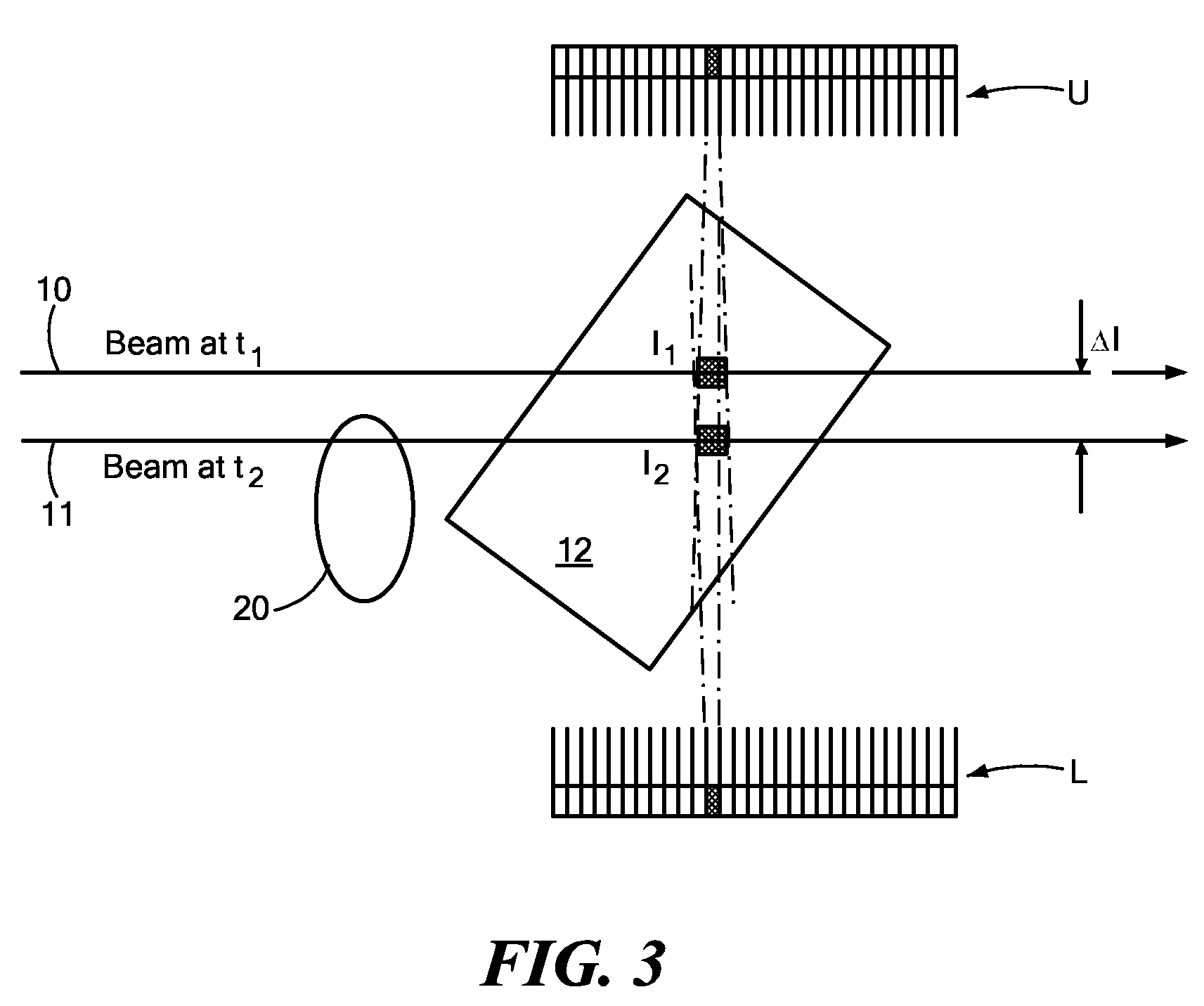Scatter attenuation tomography
a tomography and scattering technology, applied in the direction of material analysis using wave/particle radiation, using wave/particle radiation, instruments, etc., can solve the problems of large and achieve the effect of reducing the size and cost of x-ray ct systems
- Summary
- Abstract
- Description
- Claims
- Application Information
AI Technical Summary
Problems solved by technology
Method used
Image
Examples
Embodiment Construction
[0028]The current invention builds upon the teachings of U.S. Pat. No. 5,930,326 by describing a simple and elegant method for determining a much more accurate measurement of the density of concealed organic objects. In accordance with preferred embodiments of the present invention, the side-scatter distribution is detected in two detector arrays. The method allows for a full three-dimensional reconstruction of the organic contents of the container, along with the more accurate density determination that could be obtained using the methods taught in U.S. Pat. No. 5,930,326.
[0029]As now described with reference to FIG. 1, Scatter Attenuation Tomography, generally, looks at the fall-off, in the side-scattered radiation, from a raster-scanning x-ray beam as the beam moves deeper into an object of interest.
[0030]It is to be noted that while the present description refers to an incident beam 10 of penetrating radiation as an x-ray beam, it is to be understood that any beam of penetrating...
PUM
| Property | Measurement | Unit |
|---|---|---|
| density | aaaaa | aaaaa |
| density | aaaaa | aaaaa |
| energy distribution | aaaaa | aaaaa |
Abstract
Description
Claims
Application Information
 Login to View More
Login to View More - R&D
- Intellectual Property
- Life Sciences
- Materials
- Tech Scout
- Unparalleled Data Quality
- Higher Quality Content
- 60% Fewer Hallucinations
Browse by: Latest US Patents, China's latest patents, Technical Efficacy Thesaurus, Application Domain, Technology Topic, Popular Technical Reports.
© 2025 PatSnap. All rights reserved.Legal|Privacy policy|Modern Slavery Act Transparency Statement|Sitemap|About US| Contact US: help@patsnap.com



